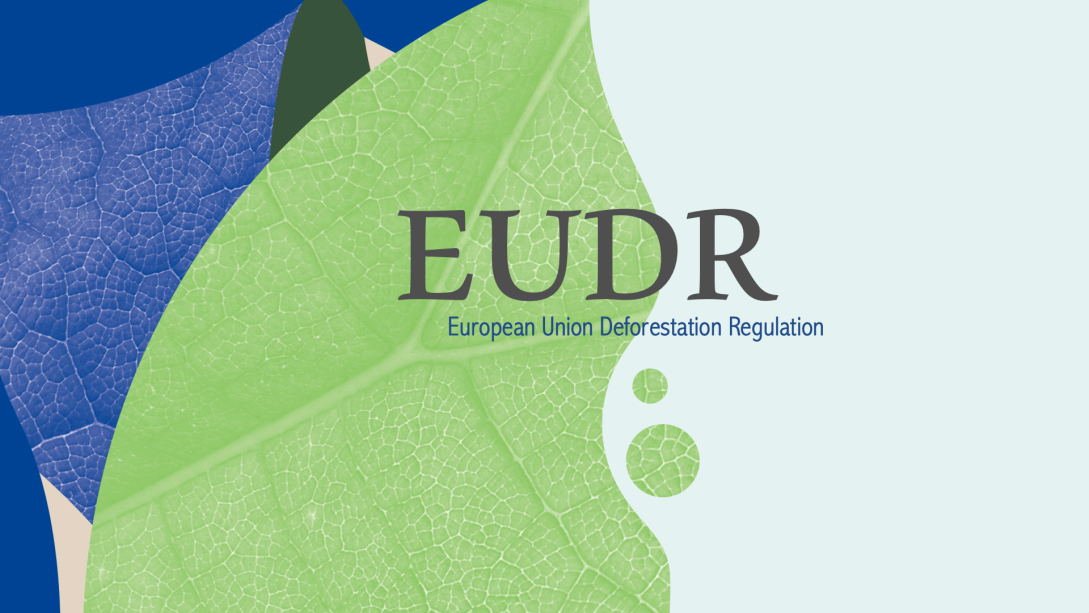A 12-month delay was the simple component of yesterday’s vote by the European Parliament that has angered supporters of the European Union Deforestation Regulation (EUDR), which was supposed to be effective on 30 December 2024.
In a statement from the EU parliament after the vote, lawmakers said: 'In response to concerns raised by EU member states, non-EU countries, traders and operators that they would not be able to fully comply with the rules if applied as of end of 2024, the Commission proposed postponing the application date of the deforestation regulation by one year.'
Thursday’s narrow vote approved a package of amendments to weaken the landmark EUDR, tabled by the conservative European People’s Party (EPP). The delay and eight amendments were approved despite businesses' and citizens’ strong support for the legislation.
The EPP’s introduction of a new loophole for products from ‘no-risk’ countries is a wolf in sheep’s clothing,"- Fyfe Strachan, Earthsight Policy and Communications Lead.
Wrangling in Parliament before the vote saw the EPP drop many other controversial amendments. However, it still managed to delay the implementation of the EUDR by 12 months and push through what was described as a “poorly drafted amendment that will exempt products from ‘no-risk’ countries from many of the law’s requirements.”
According to a statement by Earthsight, the criteria for determining which countries are ‘no-risk’ are arbitrary and seem designed to pander to Europe’s agriculture and forestry lobbies.
After a chaotic and ‘amateurish’ post-vote press conference held by rapporteur Christine Schneider from the EPP, Anke Schulmeister-Oldenhove, Forests Policy Manager at WWF European Policy Office, said: “This is a shameful moment for the EPP, and a betrayal of its commitments to European citizens, forward-looking businesses, the world’s forests, and our climate.”
Heidi Hautala, an expert on sustainability and corporate accountability and former Green MEP, said: “The very worst with EUDR has been avoided as the EPP withdrew most of its amendments at the last minute. Excluding large traders from the scope would have created a big loophole in relation to the regulation's purpose, which is to eradicate deforestation from the value chains of products imported to the EU.
“The postponement of the date of application with two years instead of one year was also avoided.”

The EUDR legislation is intended to prevent European consumption from driving deforestation and associated illegalities worldwide. Earthsight claims that the delay would impact deforestation, equivalent to the emissions of 18 million cars.
“Just last year, the EPP overwhelmingly supported the EUDR - led by a rapporteur from their own ranks. Today, they aligned with extreme right-wing factions, putting political posturing over climate action, opening the gates for deregulation whilst casting aside pleas of European citizens and responsible companies to protect our forests,” said the WWF’s Anke.
Cocoa sector dismayed at the EU decision to delay
It is an understatement to say that environmental groups and organisations representing the cocoa industry have expressed dismay at the decision to adopt the amendments in principle.
Before yesterday's vote, several of the largest chocolate companies, including Ferrero, Unilever, Mars Wrigley, Tony's Chocolonely, and some NGOs, urged MEPs to reject the proposals.
"The EUDR has suffered a massive blow today. The EPP’s introduction of a new loophole for products from ‘no-risk’ countries is a wolf in sheep’s clothing," said Fyfe Strachan, Earthsight Policy and Communications Lead. “More than this, the amendments create a dangerous loophole that could open the floodgates for products produced in high-risk countries to be laundered through no-risk countries.
“The Commission must act swiftly and withdraw its initial proposal. The amendments cannot be allowed to stand. If they do, Europe's standing in global efforts to combat deforestation will be in tatters.”
'Conservative forces'
Fern spokesperson Julia Christian said: “The EUDR has been held hostage by conservative forces determined to show that they now wield the power in Parliament: a right-wing alliance prepared to sacrifice forests for political gain.
“In forcing through substantial proposed changes to the law, the European People’s Party (EPP) has disregarded democratic principles, undermined the EU’s credibility, and taken an axe to Europe’s efforts to end deforestation in its supply chains.”
In a statement before yesterday’s vote, the EPP Group said the amendments were intended to stop illegal global deforestation “but without overburdening European farmers, companies, or international trading partners with excessive red tape.
"The current Deforestation Law is a bureaucratic monster. If implemented, it risks hampering European farmers and businesses. That’s why the EPP Group has called for a delay, but postponement alone is not enough.”
There were also complaints from a group of 20 EU countries, some companies and non-EU countries such as Brazil, Indonesia and the United States regarding the impact of the EUDR.
Next steps for the EU to salvage the EUDR
All eyes are now on the European Commission, which has the right to withdraw its proposal to delay the law.
After the vote, Parliament decided to refer the file back to the committee for interinstitutional negotiations known as ‘trilogues’ in EU-speak. For these changes to enter into force, the agreed text must be endorsed by both Council and Parliament and published in the EU Official Journal.
A date has been set for 25 January 2025, and EUDR supporters hope it will give the European Commission and European Council an opportunity to close these new loopholes and uphold the law’s integrity
Cocoaradar.com understands that the European Commission must finalise a country benchmarking system by 30 June 2025.
European Union’s Digital Services Act (DSA)
The European Union’s Digital Services Act (DSA) was successfully implemented in February 2024 and applies to all online platforms operating within the EU.
While the DSA’s implementation has been largely successful - and guided by evidence rather than political sentiment - challenges remain, particularly in enforcing compliance among all platforms and addressing concerns related to content moderation and user safety.
Suppose the EU can rein in big tech and social media companies like TikTok and Meta. In that case, dealing with the EPP and keeping its EUDR on track without further interference should not be a problem—so long as there is a political and conscientious will to do the right thing.


